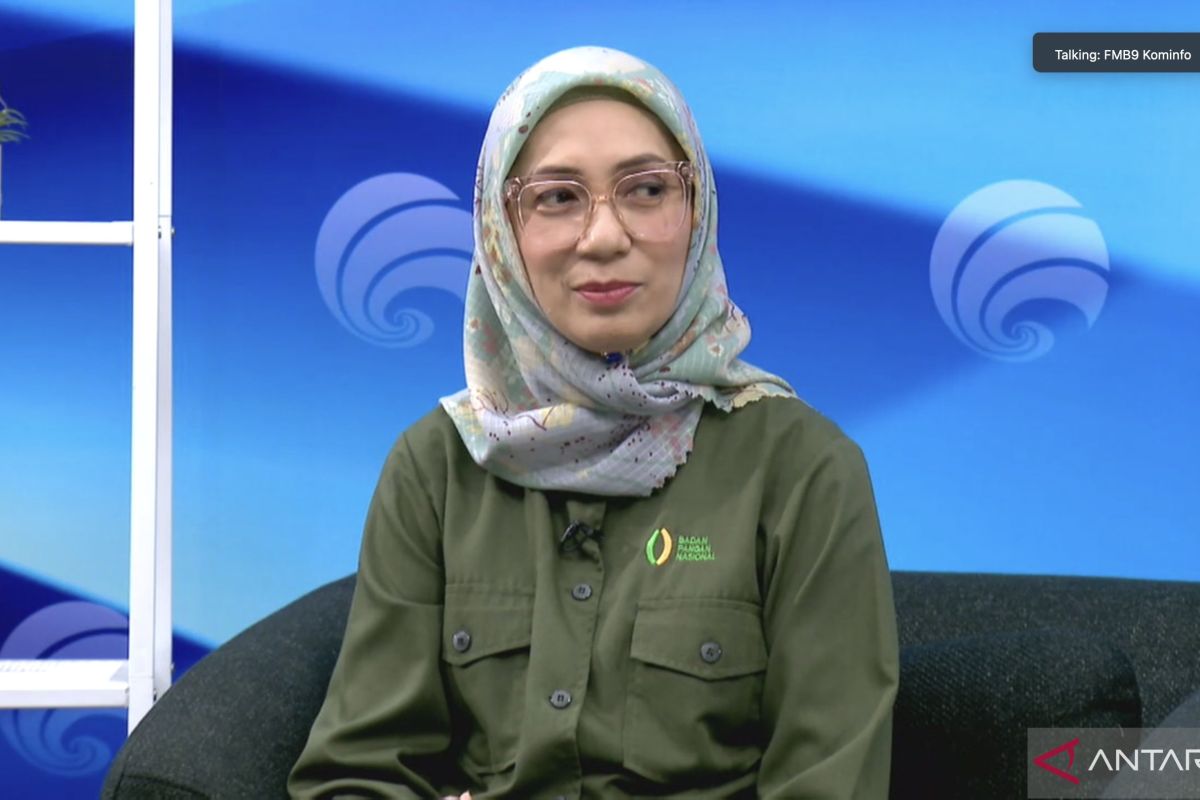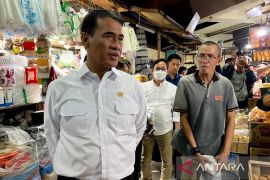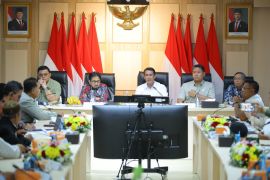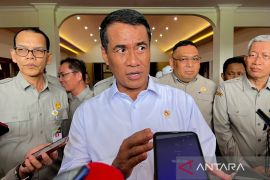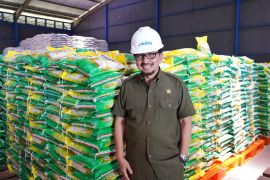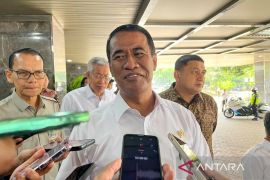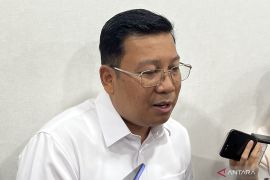Imported rice stocks are being utilized as the government's rice reserves, instead of being directly distributed to markets.Jakarta (ANTARA) -
The rice import policy is aimed at solidifying the government's rice reserves and will not hurt national farmers, who will soon enter the harvesting period, the National Food Agency (Bapanas) emphasized on Monday.
"Imported rice stocks are being utilized as the government's rice reserves, instead of being directly distributed to markets," director of distribution and food reserves at Bapanas, Rachmi Widiriani, said.
Speaking during an event entitled "Preparing for Ramadan, Conditions of Prices of Staples," which was followed online from Jakarta,Widiriani said that her office has tasked state-owned logistics company Bulog with controlling the circulation of imported rice.
During the harvesting period, she added, Bulog has the responsibility to purchase rice stocks from domestic farmers.
"That way, we strive to maintain the farmers' exchange rate that currently stands at a preferred score of around 120," she explained.
She affirmed that it is the government's duty to ensure that farmers make a profit from their harvest.
At the same time, the government needs to fulfill the food needs of the people, she said.
"Note that we cannot afford to continue importing, as such a reliance will hurt farmers," she added.
Earlier on February 27, 2024, Bapanas head Arief Prasetyo Adi said that the government's decision to import an additional 1.6 million tons of rice was meant to prevent a rice shortage in the country.
He added that the government needs to secure ample stocks of rice for its reserves to prevent shortages, which can be triggered by production disruptions related to weather and pests.
Rice imports would serve as an anticipatory measure to meet the national need for about 2.5 million tons of rice per month, he noted.
Meanwhile, President Joko Widodo has approved a plan to increase the quantity of subsidized fertilizers from 4.7 million tons to 9.55 million tons this year to ramp up the productivity of crop farmers.
Related news: Govt to develop S Sumatra swamp land as food buffer
Related news: Government prepares importing additional 1.6 million tons rice
"Imported rice stocks are being utilized as the government's rice reserves, instead of being directly distributed to markets," director of distribution and food reserves at Bapanas, Rachmi Widiriani, said.
Speaking during an event entitled "Preparing for Ramadan, Conditions of Prices of Staples," which was followed online from Jakarta,Widiriani said that her office has tasked state-owned logistics company Bulog with controlling the circulation of imported rice.
During the harvesting period, she added, Bulog has the responsibility to purchase rice stocks from domestic farmers.
"That way, we strive to maintain the farmers' exchange rate that currently stands at a preferred score of around 120," she explained.
She affirmed that it is the government's duty to ensure that farmers make a profit from their harvest.
At the same time, the government needs to fulfill the food needs of the people, she said.
"Note that we cannot afford to continue importing, as such a reliance will hurt farmers," she added.
Earlier on February 27, 2024, Bapanas head Arief Prasetyo Adi said that the government's decision to import an additional 1.6 million tons of rice was meant to prevent a rice shortage in the country.
He added that the government needs to secure ample stocks of rice for its reserves to prevent shortages, which can be triggered by production disruptions related to weather and pests.
Rice imports would serve as an anticipatory measure to meet the national need for about 2.5 million tons of rice per month, he noted.
Meanwhile, President Joko Widodo has approved a plan to increase the quantity of subsidized fertilizers from 4.7 million tons to 9.55 million tons this year to ramp up the productivity of crop farmers.
Related news: Govt to develop S Sumatra swamp land as food buffer
Related news: Government prepares importing additional 1.6 million tons rice
Translator: Putu Indah, Tegar Nurfitra
Editor: Rahmad Nasution
Copyright © ANTARA 2024
